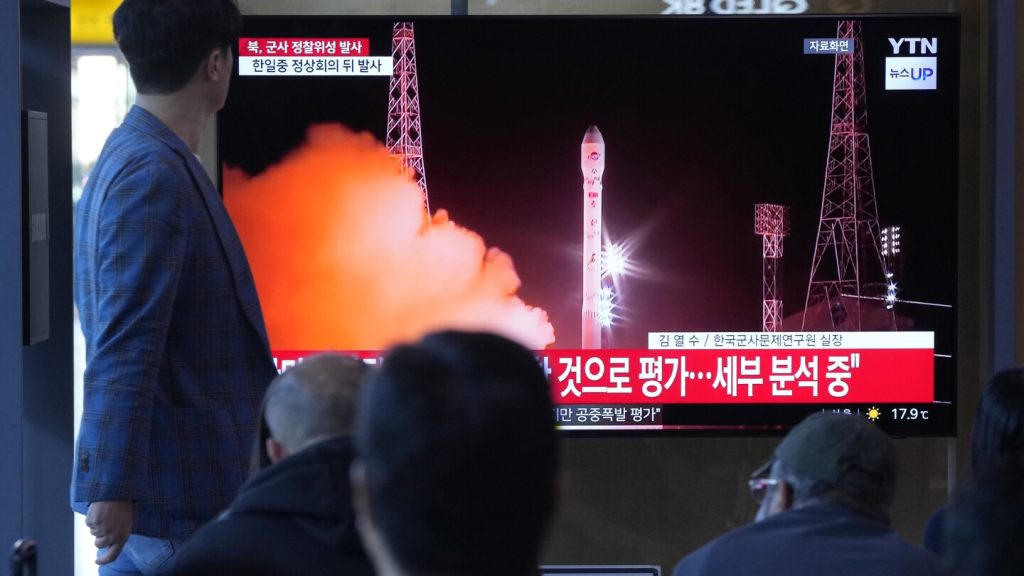A rocket launched by North Korea to deploy the country’s second spy satellite exploded shortly after liftoff Monday, in a setback for leader Kim Jong Un’s hopes to operate multiple satellites to better monitor the U.S. and South Korea. The launch drew rebukes from neighboring countries and the U.S., as the U.N. bans North Korea from conducting such launches, viewing them as covers for testing long-range missile technology. The rocket blew up during a first-stage flight soon after liftoff due to a suspected engine problem, according to the North’s official Korean Central News Agency.
Japan’s government briefly issued a missile warning for the southern prefecture of Okinawa, urging residents to take shelter inside buildings. Japanese Defense Minister Minoru Kihara called the North’s launch “a serious challenge to the entire world.” The U.S. Indo-Pacific Command criticized the launch as a “brazen violation” of U.N. Security Council resolutions, linking it to North Korea’s intercontinental ballistic missile program. South Korea labeled the launch a provocation that seriously threatens regional security.
North Korea has been adamant about its right to launch satellites and test missiles in response to perceived threats from the U.S. and South Korea. The nation maintains that operating spy satellites will improve its missile capabilities and monitoring capabilities of its rivals. The failed satellite launch is seen as a blow to Kim Jong Un’s plan to launch three additional military spy satellites in 2024, following a successful deployment of the country’s first military reconnaissance satellite last November.
Observers suggest that North Korea’s timing of the satellite launch may have been intended to disrupt the trilateral meeting between South Korea, China, and Japan, demonstrating displeasure with China’s diplomatic engagements in the region. Kim Jong Un has been pursuing closer ties with Beijing and Moscow to counter U.S. influence, with a focus on Russia in recent months. North Korea’s Foreign Ministry strongly criticized a joint statement issued by the three leaders from the trilateral meeting, citing interference in its internal affairs.
The failed launch comes after two prior unsuccessful attempts by North Korea to place satellites in orbit. In the first attempt, the rocket carrying the satellite crashed into the ocean, while the second attempt saw an error in the emergency blasting system during the third-stage flight. North Korea’s ambitions for a space program have faced multiple setbacks, with the recent explosion highlighting challenges in the country’s rocket technology development. The international community has condemned the launch as a violation of U.N. resolutions.
Despite setbacks, North Korea remains committed to advancing its space capabilities and missile technology. The failed launch underscores the ongoing tensions in the region and the challenges posed by North Korea’s military ambitions. The incident adds another layer of complexity to the geopolitical dynamics in Northeast Asia, with implications for security and stability in the region. As North Korea faces criticism for its actions, the international community will be closely monitoring developments on the Korean Peninsula.


